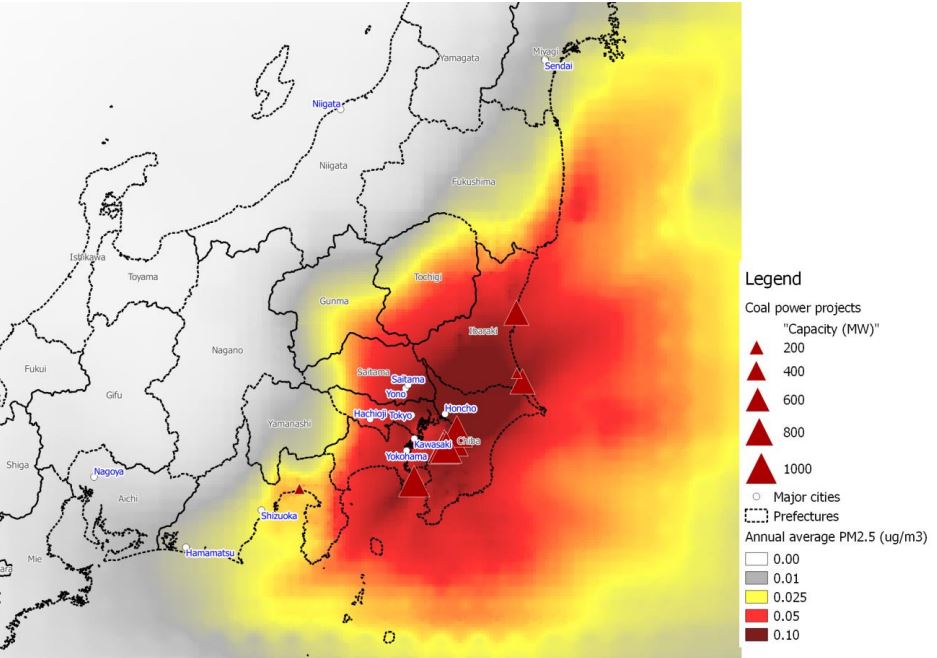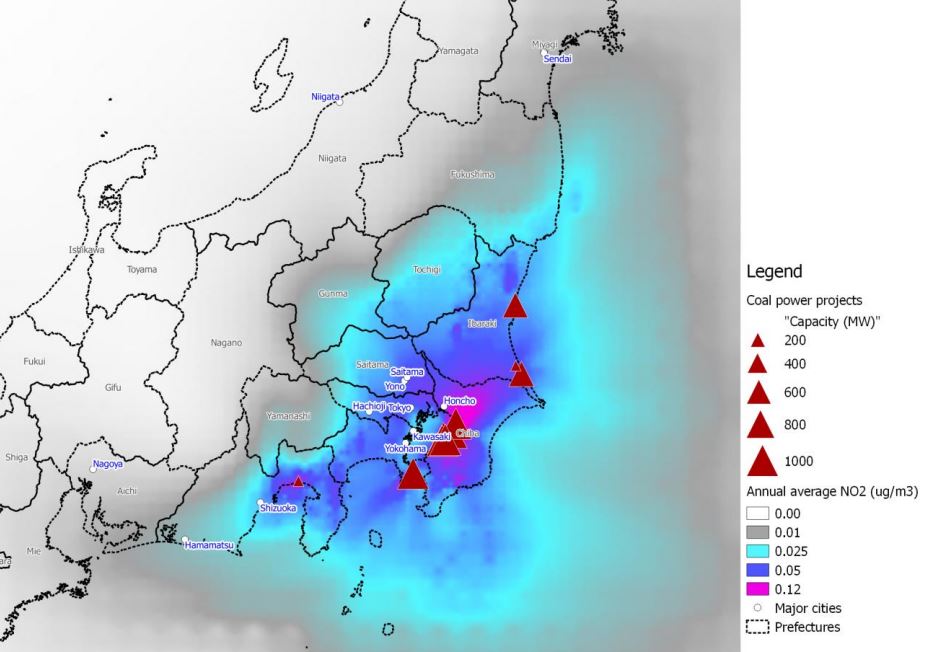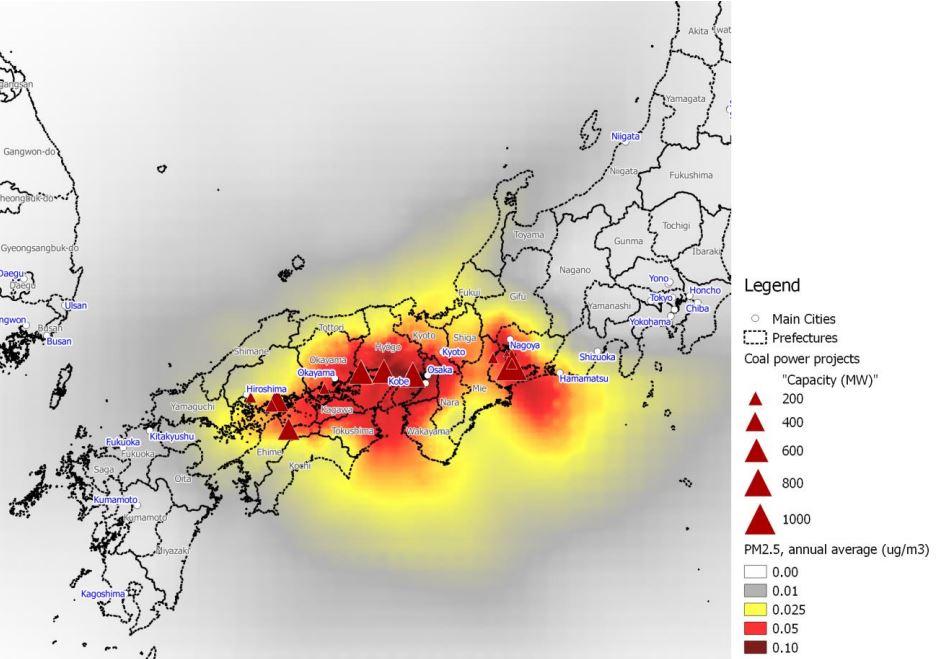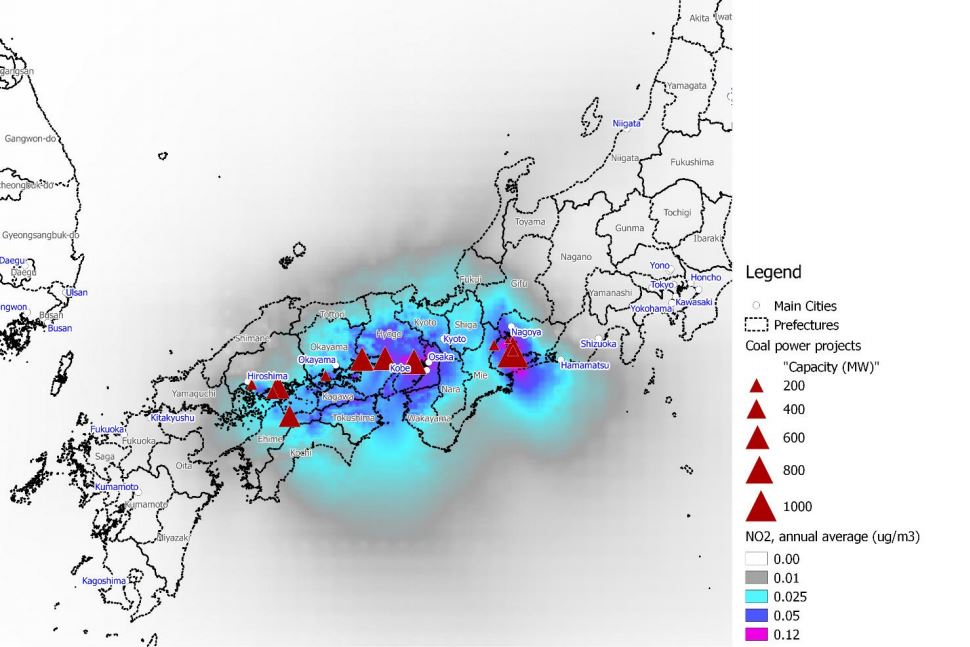Japan’s planned coal plants could cause thousands of air pollution deaths

Japan’s plans for a fleet of new coal-fired power plants could cause thousands of early deaths from air pollution, according to a new study.
The research comes as world leaders travel to Tokyo for the latest summit of the G7 nations.
Japan is unique among the G7 in pursuing new coal projects, with its 43 plants in-the-pipeline seeming to undermine last year’s Paris climate deal.
Greenpeace experts estimate that pollution from 25 projects planned near the country’s major cities could cause nearly 500 premature deaths a year —and a total of between 10,000 and 26,000 deaths over 40 years.
Impact on Tokyo
Tokyo will actually be amongst the most effected regions, with 10 new coal projects planned within 200km of the capital.
The study estimates these projects alone could cause 260 deaths a year.
Meanwhile, 15 coal-fired projects planned near Osaka and Hyogo could claim 200 lives.
And this is in addition to the approximately 180 deaths per day in Japan that the Global Burden of Disease project blames on ambient air pollution, mostly produced by coal and cars.
That figure comes from 2013 and is 40% higher than it was in 1990, with the Japanese population both considerably older and more concentrated in cities.
So it doesn’t exactly seem to be getting better.
See also: Japanese coal expansion could leave $56bn in stranded assets


The data
The study, which assumes emissions levels far below the maximum allowed by the Japanese government, uses CALPUFF — the pollution modelling system recommended by the US Environmental Protection Agency.
Though these new plants will be more efficient and less polluting than older ones, the SO2, NOx and particulate matter they’ll likely produce will be especially damaging since the plants neighbour large population centres.
Let’s start with the Tokyo projects.
The maps above illustrate 10 planned projects with a combined capacity 7500MW.
These plants could cause 260 deaths per year and 30 low birth weight births, assuming all of them are built and operated.
Of the premature deaths, 180 will likely be due to exposure to PM2.5 and 80 due to exposure to NO2.
Onto Osaka and Hyogo.


These 10 projects, with a combined capacity of 6500MW, are projected to cause 200 preamature deaths and 20 low birthweight births.
Of the premature deaths, 130 will likely be due to PM2.5 exposure and 70 due to exposure to NO2.

